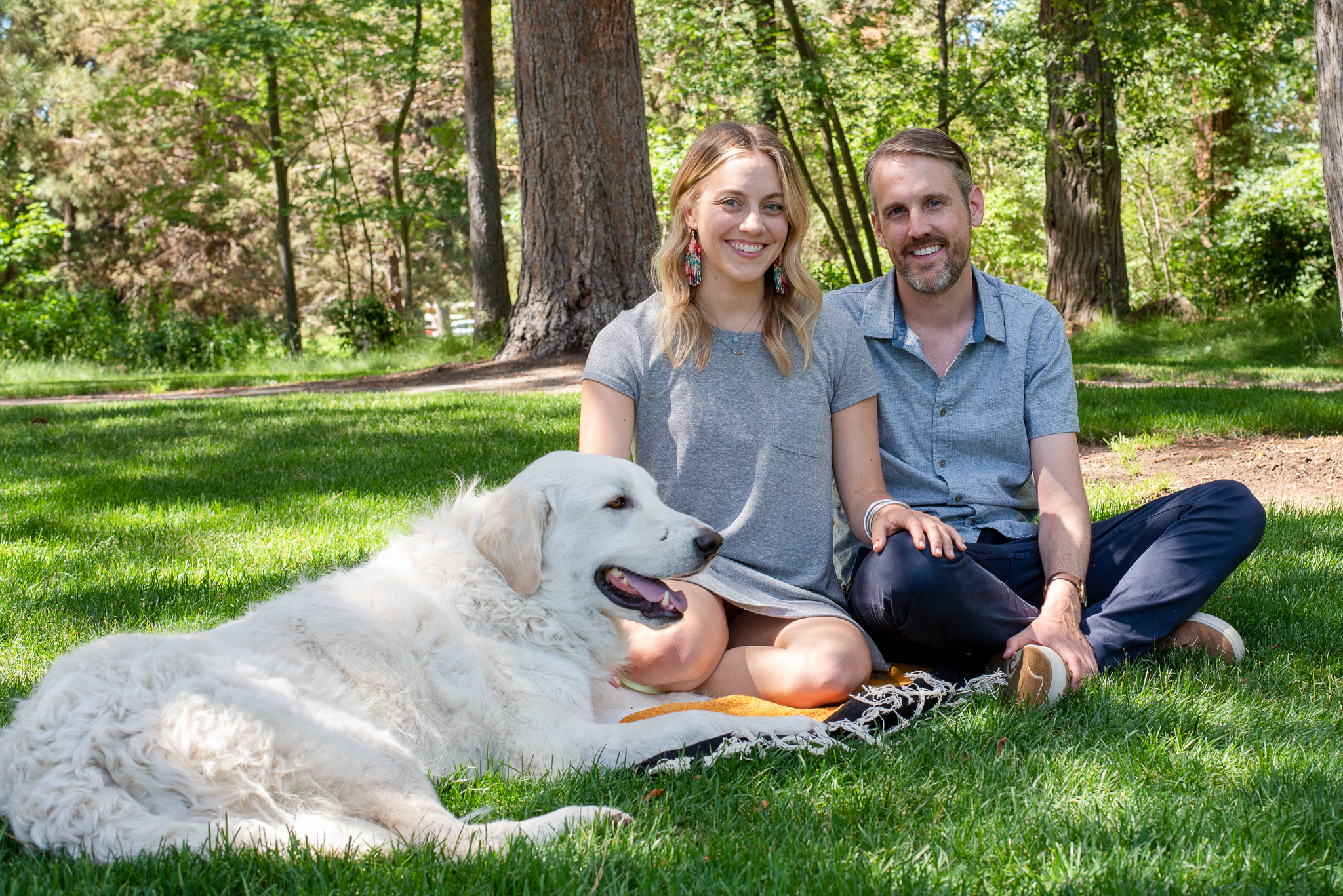Valley Fever: Lennon’s Survival Tale
Pet Parent Heroes Jenna & Ronan: Lennon’s Tale
For any pet parent, Lennon’s story is a tale of terror, at least at the beginning. Over the course of a year, Lennon, a healthy, active dog, grew increasingly lethargic. Then one day last in December, he was unable to walk. Fortunately, Lennon’s pet parents, Jenna and Ronan, remained dogged in their search for a correct diagnosis. With determination and devotion to his treatment and physical therapy, they helped Lennon regain his energy and strength. Here’s their story.
Something’s Not Right
Jenna knew something was wrong with Lennon more than a year ago, when they were living in Southern Utah. A therapy dog who’d helped many kids through rough territory, Lennon was normally alert and full of energy. At the time, his symptoms were still too elusive for their veterinarian who told them Lennon would probably be fine, and gave Jenna some pain medication. The family moved to Bend, Oregon, and started seeing a new vet. Lennon was tested for Valley Fever. The test results came back negative.
Lennon was getting worse, and stopped walking altogether around the Christmas holiday. “It was pretty scary,” said Jenna. Jenna and Ronan wondered, “Was it cancer?”
A local vet who practices holistic veterinary medicine was very concerned, and recommended Jenna and Ronan take Lennon to the Veterinary Referral Center of Central Oregon to see a specialist.
At Long Last, a Diagnosis
At VRCCO, a CT scan was performed and they were able to appreciate a bone lesion. Dr. Mauricio Dujowich, a veterinary surgeon was then able to perform a CT guided biopsy. This time we got a diagnosis. The results were positive for Valley Fever. Lennon spent five days in the hospital. Jenna remembers, “We thought he was going to die.”
Jenna and Ronan knew that neither of them wanted to give up on the idea that Lennon could recover and return to his strong and heathy self. Their beloved dog was only two years old. Together, they’d do everything they could.
A Slow But Sure Road to Recovery
Lennon started antifungal treatment under, internal medicine internist, Dr. Matt Vaughan’s guidance, but it would be a long time before they’d see any improvement. The infection had affected Lennon’s spine, causing the immobility. Jenna and Ronan feared Lennon would be permanently paralyzed.
“It was difficult, “said Ronan. They needed to pull Lennon, who weighs over 100 pounds, by a sling under his belly. Lennon had trouble sleeping. Over the course of many months, the three of them spent many sleepless nights.
The antifungals started taking effect, but progress was very, very slow. One happy day, they noticed movement: Lennon wiggled a toe! Ronan shared, “It was a big celebration moment!”
Jenna and Ronan got Lennon around in a wheelchair for a while. Later, for walks, they wheelbarrowed him, as for quite some time Lennon only had the use of his front legs. Eventually, step by step and with much stumbling, Lennon began to use his back legs.
Lennon started physical therapy, and still goes. He loves it. According to his pet parents, he loves going to VRCCO, too. They joke about how many girlfriends Lennon has at the hospital. “He’s kind of a flirt,” said Ronan.
An Emotional As Well As Physical Journey
Along the journey, well-meaning people suggested Jenna and Ronan put Lennon down. But Jenna said, “He was so young.” They weren’t willing to take that action. He was a therapy dog, after all, and had been around struggle before. Jenna said, “I think he saved some kids’ lives.”
It was a terrible moment, one no pet parent ever wants to face. “It was a difficult time in our lives, really scary,” said Jenna. “We went through a lot together, as well, to get through that.”
Lennon can walk, now, and can even run. Jenna and Ronan are grateful to VRCCO for helping figure out the cause of Lennon’s illness and getting him the appropriate treatment. They’d had the option of going to Portland for treatment, but are happy to have stayed here in Bend. One reason was logistics. Lennon needed to visit the office for an infusion three or four times a week in the course of a month. The other big reason is how well-supported they felt in a difficult time.
“They talked us through the diagnosis and complicated treatment,” said Ronan. Jenna added, “They were wonderful through all the emotional ups and downs. In a situation like this, You feel really desperate.
“We could really trust them.”
At the end of the day, Jenna and Ronan were the heroes Lennon needed. The road was often hard, with many switchbacks, but as Ronan recalled Jenna saying, “He’s family. That’s what you do.”




